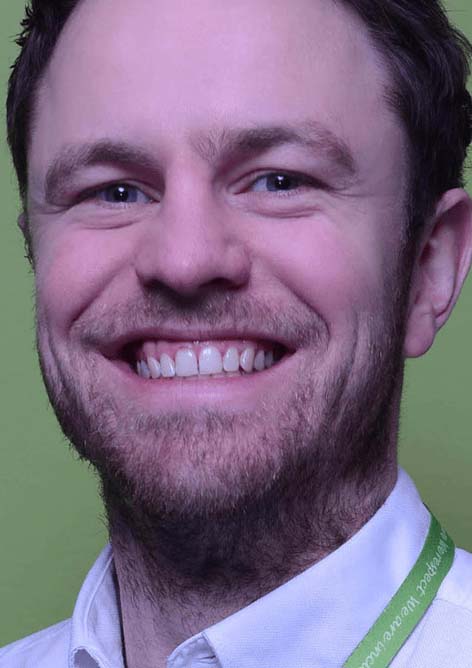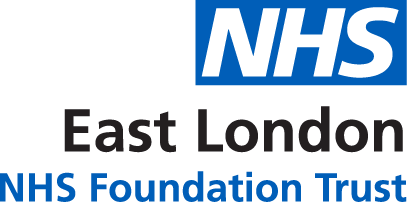Interview with Jamie Stafford

It’s been just over two years since the Community Mental Health Transformation Programme started. We catch up with Programme Director Jamie Stafford to see what’s happened and what’s next…
Congratulations on your promotion, how did you come to be involved in the programme?
Thank-you very much!
I joined ELFT in 2013 and since then have worked in a variety of nursing, management and Quality Improvement roles. When the London Community Mental Health Transformation Programme was initiated in November 2019, I was tasked with supporting the use of Quality Improvement within the work to design, test and scale-up a new model of integrated care, and also to support the development of a learning system around the work – an opportunity for people to test and learn together.
Since September 2020 I’ve worked as a Programme Manager and now Director and spent much of that time as the Programme Lead for Tower Hamlets. It’s genuinely been a complete privilege to work in the programme, and has really brought together my love of improvement, systems leadership, and coproduction.
How do you think your nursing background has helped you in your current role?
Mental Health Nursing is such a wonderful career, and there’s something so special about caring for people, particularly when they’re struggling in life. My years working on inpatient units helped give me some insight into some of the challenges that people in our communities face, and also why genuine coproduction with service users and communities really matters. It became increasingly apparent to me that the most impactful intervention we provided on the ward was the community of people within it – I saw incredible nursing care role-modelled and also saw the profound value of peer-support.
I think having an awareness and experience of some of the pressures and challenges faced in front-line care – particular within multi-disciplinary teams – has been important for me in my current role too. I’ve spent much of the last decade working in and with teams trying to improve things, and learnt a great deal working in nursing teams about relationships and teamwork.
It’s also true that there are so many remarkably compassionate and dedicated health and social care staff who haven’t come from a clinical background, but live and breathe the same values of care, respect, and inclusivity. Believe it or not, I’ve met many unsung heroes in our corporate services!
Why is this programme important to the community, the services users and staff?
The programme represents such a huge opportunity for us to change the way we think about mental health care in the community. As a large NHS organisation, I think we have a lot to learn from some of the smaller organisations in our geographies, and their ability to connect more directly with the local communities we serve. Indeed, some of them are the local community. Some of our biggest successes in recent years have been as a result of partnering with new organisations, and co-developing new culturally-competent care offers.
While there is a rich history of partnership working with the voluntary sector in pockets, I believe this programme represents an opportunity to ‘mainstream’ this approach – making it the rule, rather than the exception.
We also have a lot more to learn from our Primary Care colleagues. Speaking with GPs particularly about how they see their role in local communities as well as their understanding of the wider determinants of health and how they impact their local population, is so refreshing. Their model is entirely open-access and self-referral (with proactive outreach offered too), and no-one is ever discharged. What would it take to normalise this approach for mental health services, and what would be the impact?
How has the programme progressed over the last two years?
Quickly! We started with just a handful of ‘pioneer sites’ who coproduced this new model of care from the ground up. Over the last two years we’ve gradually scaled things up and are now ‘live’ in all 24 Primary Care Networks in East London.
It’s felt like during that time we’ve engaged a larger and larger group of stakeholders, both within and outside of ELFT. We’ve also been able to welcome so many new staff, and really developed and embedded a set of new roles to support this broader more diverse multi-disciplinary team – Community Connectors, Clinical Associates in Psychology, GP Mental Health Leads, Mental Health Practitioners (through the ARRS programme).
As a programme team we’ve continually evolved too, depending on where the work has been focussed at different times. We’re particularly proud of our amazing People Participation sub-team, which has grown a lot during that time and has had a massive impact across the local system.
What challenges has the programme faced?
Some of our challenges come from the sheer scale of the task in hand. This feels like a generational opportunity to reimagine mental health care in the community, and bring about structural, process and culture change. Of course, all of this has been happening while services remain open and managing waves of COVID-related disruption (and loss). I think at times, people have found this rather overwhelming, and we’ve inevitably had ebbs and flows in momentum. We’ve also seen some amazing examples of how our closer connections with partner organisations have enabled a more joined-up approach to some of the challenges faced. The flexibility, resilience and creativity within our teams has been really inspiring to see.
What are your key objectives for programme delivery this year and how do you plan to fulfill these?
We’re just about to kick off a process of planning for the year ahead, so I think that remains to be decided. Two areas that are top of my list though are:
Inequalities – Our VCSE Winter Pressures Programme, which we are running with Compass Wellbeing is identifying some amazing ideas from the voluntary sector for ways that we can work together to tackle inequalities in access, experience and health outcomes. I think this will be a huge focus area for the programme this year.
Care planning – As we look to further embed DIALOG+ and move away from CPA, I think another major focus of our work will be around care-planning. There are also some hugely exciting related pilot projects in the pipeline too, including the expansion of the Patients Know Best platform (which enables people to access their DIALOG+ care plan and Physical Health Check data on their own smartphone) and some new developments around Personal Health Budgets.
OPTIONAL quick fire questions
How do you maintain a good work life balance?
Balance is important - my 3yr old and 1yr old kids make sure that I work just as hard out of work as I do in work!
What or who has been the greatest influence on your life, would you say?
100% my family.
What would your alternative career be if you weren’t in the NHS?
I studied maths at university, and nearly went into accountancy. I like to think if I had though I would’ve still worked in the ELFT Finance team!
What advice would you give your younger self?
My favourite quote – “The process you use to get to the future is the future you get.”
